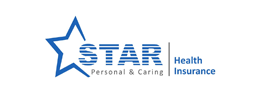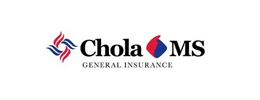Last updated on: September 19, 2025
Section 80D of the Income Tax Act allows senior citizens (aged 60 years and above) to claim tax deductions on premiums paid for health insurance. For senior citizens, the maximum deduction limit is ₹50,000 per financial year, which can include health insurance premiums paid for themselves, their spouse, or dependent children. Additionally, if medical expenses are incurred by a senior citizen who does not have health insurance, these expenses are also eligible for deduction within the ₹50,000 limit. For very senior citizens (aged 80 years and above), the same benefits apply. This deduction is separate from the deduction available under Section 80C, thus providing additional tax-saving opportunities for senior citizens on medical-related expenses.
The Section 80 D exemption to the aged citizens continues to have tremendous tax benefits in terms of health insurance premium and health expenses of the assessment year 2025-26. This plan has a real savings outcome to the senior citizens and families and improved healthcare insurance cover. Being a senior citizen or a relative of the senior citizens and budgeting its finances or elderly insurance coverage, it is necessary to learn about Section 80D and claim it in 2025.
Whether its the process of exploring the tax saving schemes on behalf of old citizens, accessing health insurance plans on behalf of the older members of a family, and already paying the medical bills on behalf of elderly dependents, this guide will give the solution to all the inquisitions regarding the subject matter of 80D deduction on behalf of old citizens with regards to its eligibility, key benefits, practical examples, useful tips, and frequently asked questions.
In section 80D of the Income Tax Act, 1961, the taxpayers will enjoy deductions of their taxable income towards the payment of premiums on health insurance and other losses on health expenses. It is specifically aimed at reducing outgo of taxes and encourage proper health cover among the elderly citizens, that is, persons 60 years or more at any one time during the financial year.
Definition:
Senior citizens include the people who have reached 60 years and upwards in the financial year but not 80 years.
This deduction is whether the elderly individual has health insurance or not and the medical expense is offered in the event the insurance is not accessible. This qualifies the Section 80D as the distinct consideration of the benefits of senior citizens in India in the FY 2024-25.
Interesting fact?
Documentation and claim among the senior citizens are easily carried out by 2025 because most insurers and tax agencies accept digital payment receipts of medical bills.
Section 80D deduction can be claimed in the following situation:
Family refers to relatives like grandparents, sibling or in-laws could only be recognized so long as they are dependants who are covered in the insurance policy.
| Eligible 80D | Max. Deduction 2025 |
|---|---|
| You (Individual) | ₹50,000 |
| Spouse | ₹50,000 |
| Parents (senior) | ₹50,000 |
| Minors | As a family member |
| Non-dependent family | 0 |
Q: Is Section 80D available for Non-Resident Indians (NRIs) in 2025?
A: Yes NRIs can make a claim in case they pay the premium on themselves, spouse and dependent children or parents in India on an insurer registered in India.
Claims are to be made under payments that should fall within one or more of the following categories:
| Individual Scenario | Max Deduction (60+) |
|---|---|
| Senior citizen self/spouse (no parent claim) | ₹50,000 |
| Senior citizen parent(s) | Additional ₹50,000 |
| both parents and self an elderly citizen | ₹1,00,000 |
| Family floater on seniors | In relevant cap |
| Preventive Health Check-up | Above, max ₹5,000 |
Expert insight:
Suppose that you are paying the health cover of senior citizen besides your senior citizen parents, this would ensure that you get a total deduction of up to ₹1,00,000 which will bring down your taxable income by an immense amount.
If a senior citizen is uninsured and unable to purchase health insurance (due to pre-existing illness, denial from insurers, advanced age), medical expenses incurred can be claimed under Section 80D (within ₹50,000 limit).
Approved medical expenditure:
Not covered:
Did You Know?
The majority of the government and privately owned hospitals provide elaborate digital medical bills, which are required by the income tax authorities when making claims under Section 80D medical claims in 2025.
Mr. Kumar, aged 68, pays ₹25,000 premium for his own senior citizen health policy and ₹40,000 towards his 92-year-old parent’s medical bills (since insurance is unavailable for extreme old age).
Claimable 80D item:
But he is restricted by limits of per heads to ₹50,000 per head.
He can claim ₹25,000 for self, ₹40,000 for parent (max up to ₹50,000/₹50,000 as applicable).
Top tip:
Since health insurance plans currently also come with special tax-saving features, consider wellness benefit health plans that have 80D compliant receipts as well.
Q: Is a senior citizen able to claim spouse and parent deduction?
A: Yes, provided both the spouse/or parents are elderly citizens and dependent and the premiae/medical cost are brought by the claimant.
Q: On a non-dependent parent, does son, or daughter stand in a claim to premium?
A: Dependent payments are claim only.
This is why you did not know?
The e-filing of the income tax in the year 2025 will also have prompts to the claim of 80D in order to reduce errors and omission by the senior citizens.
Advantages
Limitations
Meena, a 63 year old retired employee in a PSU in Mumbai says:
“Earlier I ignored medical payments while filing taxes. When I carried out some research on 80D and discussed it with my son who uses an online comparison site to find senior health plan offerings, I switched to a customised health plan along with making payments of hospitalisation digitally. By claiming full ₹50,000 deduction I have saved my family more than ₹15,000 in taxes last year. Also, I used my preventive health checkup reimbursement easily with the insurer invoice and my UPI payment slip.”
The experts state: it is possible to repeat tax savings of due 80D documentation annually, whereas medical expenses increase after retirement.
| Particulars | Senior Citizen (60 years+) | Non-Senior (Below 60) |
|---|---|---|
| Max Deduction (Self/Spouse) | ₹50,000 | ₹25,000 |
| Parent(s) (If senior citizen) | ₹50,000 | ₹25,000 |
| Medical Expenses (if uninsured) | Yes, upto ₹50,000 | Not allowed |
| Preventive Health Check-up Cap | ₹5,000 (overall limit) | ₹5,000 (overall limit) |
| Insurer Requirement | Indian insurer | Indian insurer |
| Online payment will have to be conducted | No | No |
Q: Is it possible that an elderly can avail the deduction of two policies on two parents and spouse (under 80D)?
A: Yes within the bounds of the individual as far as they go.
Advantages:
Mini case study:
Ranjit (70 years) and Rajni (65 years) tested online marketplace new senior insurance plans in 2025. They purchased a family floater which had a designated 80D tax certificate and it was easy to upload their premium payment receipt through their tax advisor system thereby facilitating their tax saving work.
Surprisingly enough, did you know?
Its simplified ITR filing process has been made through insurers issuing some certificate of 80D deductions together with payments.
Q: Can I get deduction of the premiums under 80D on the premiums on behalf of my mother who is more than 80 years?
A: Yes, super senior citizens (above 80) are included under Section 80D. Even if health insurance is not available, actual medical expenses (up to ₹50,000) can be claimed.
Q: Is the medical expenses that senior citizens incur under Section 80D claimable in cash?
A: Only preventive checkups can be paid in cash (up to ₹5,000). The rest of payments should be digital/non-cash.
Q: Which documents are required to claim 80D?
A: Policy copy, payment receipts, insurer 80D certificate, and original medical bills (for uninsured seniors).
Q: Does the benefit pass on to parents in India to the NRIs?
A: Yes, provided premiums/medical are paid to Indian registered insurers/hospitals and other conditions are fulfilled.
Q: What in case premium is paid partially?
A: Only the portion paid by you (not reimbursed) is eligible, within the maximum limit.
Q: Are AY 2025-26 limits going to be different?
A: Any changes so far are not announced.
Q: Can Section 80D deduction be used under both old regime as well as new one?
A: Under old regime only.
But did you know?
An early filing and the storage of all receipts in soft copy can ensure the prevention of the last-minute mistaps or missed claims.












How could we improve this article?
Written by Prem Anand, a content writer with over 10+ years of experience in the Banking, Financial Services, and Insurance sectors.
Prem Anand is a seasoned content writer with over 10+ years of experience in the Banking, Financial Services, and Insurance sectors. He has a strong command of industry-specific language and compliance regulations. He specializes in writing insightful blog posts, detailed articles, and content that educates and engages the Indian audience.
The content is prepared by thoroughly researching multiple trustworthy sources such as official websites, financial portals, customer reviews, policy documents and IRDAI guidelines. The goal is to bring accurate and reader-friendly insights.
This content is created to help readers make informed decisions. It aims to simplify complex insurance and finance topics so that you can understand your options clearly and take the right steps with confidence. Every article is written keeping transparency, clarity, and trust in mind.
Based on Google's Helpful Content System, this article emphasizes user value, transparency, and accuracy. It incorporates principles of E-E-A-T (Experience, Expertise, Authoritativeness, Trustworthiness).